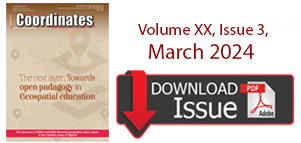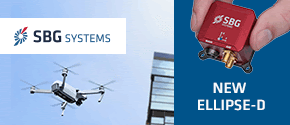| Conference | |
Encouraging coordination among GNSS providers
8th ICG meeting, 10 – 14 November 2013, Dubai, United Arab Emirates |
Joint Statement
The Eighth Meeting of the International Committee on Global Navigation Satellite Systems (ICG) was held in Dubai, United Arab Emirates (UAE) from 10 to 14 November 2013 to continue reviewing and discussing developments in global navigation satellite systems (GNSS) and to allow ICG members, associate members, and observers to address recent developments in their organizations and associations with regard to GNSS services and applications. Chairman of the UAE Telecommunications Regulatory Authority (TRA), H.E. Mohamed Ahmad AlQemzi and Chairman of the Emirates Institution for Advanced Science and Technology (EIAST), H.E. Hamad Obaid AlMansouri delivered an opening speech on behalf of host government. A representative of the United Nations Office for Outer Space Affairs also addressed the Meeting.
ICG addressed GNSS science and innovative technology applications and future commercial applications. Representatives from industry, academia and governments shared views on GNSS compatibility and interoperability.
EIAST hosted the Meeting on behalf of the Government of Dubai. Attendees included China, India, Italy, Japan, Malaysia, the Russian Federation, the United Arab Emirates, the United States of America, and the European Union, as well as the following intergovernmental and nongovernmental organizations: Civil Global Positioning System Service Interface Committee (CGSIC), European Space Agency (ESA), Federation Aeronautique Internationale (FAI), International Federation of Surveyors (FIG), International Association of Institutes of Navigation (IAIN), International Association of Geodesy (IAG) and IAG Reference Frame Sub-Commission for Europe (EUREF), International Bureau of Weights and Measures (BIPM), International Earth Rotation and Reference Systems Service (IERS), International GNSS Service (IGS) and Interagency Operations Advisory Group (IOAG). Representatives of the Office for Outer Space Affairs and the International Telecommunication Union (ITU) also participated. A representative of Canada was invited to attend as observer. The representatives of the Asia-Pacific Space Cooperation Organization (APSCO), the African Regional Centre for Space Science and Technology Education – in English Language (ARCSSTE-E), and Space Generation Advisory Council (SGAC) also participated. The representatives of the Arab Institute of Navigation (AIN) and the European Space Policy Institute (ESPI) also attended and were recognized by ICG as new observers.
ICG recalled that the United Nations General Assembly, in its resolution 67/113 of 18 December 2012, noted with appreciation the continuous progress made by ICG towards achieving compatibility and interoperability among global and regional space-based positioning, navigation and timing systems and in the promotion of the use of GNSS and their integration into national infrastructures, particularly in developing countries, and also noted with appreciation that ICG held its seventh meeting in Beijing from 5 to 9 November 2012.
The ICG considered the future scope of its work and organizational structure, and ways and means to enhance user input and the visibility of the ICG, and other proposals to increase the effective implementation of its recommendations. In this regard, the ICG adopted a Mission Statement, concluded that the ICG, as a platform for open discussions and information exchange is a great success, and adopted “The Summary of discussions concerning the Future of the International Committee on Global Navigation Satellite Systems”.
ICG noted that the working groups focused on the following issues: compatibility and interoperability; enhancement of the performance of GNSS services; information dissemination and capacity-building; and reference frames, timing and applications.
The Working Group A on Compatibility and Interoperability (WGA) addressed all four areas of its current work plan during its inter-sessional meeting held in Vienna, Austria in June 2013 and during the ICG-8 meeting. The compatibility and International GNSS Monitoring and Assessment (IGMA) subgroups of WG-A provided reports at the intersessional meeting that formed the basis for recommendations on spectrum protection, open service performance, and the monitoring of open services. Recommendations were also presented to the Committee related to interoperability and interference detection and mitigation. In additional to the inter-sessional meeting, WGA organized and completed the second ICG Interference Detection and Mitigation Workshop and the first Interoperability Workshop, held in Honolulu, USA, April 2013, and reported the conclusions to the working group. The next IDM Workshop will take place in May 2014 immediately preceding the China Satellite Navigation Conference (CSNC-2014). Two regional interoperability workshops involving users and manufacturers from Russia and China, as well as members of the Interoperability Task Force, will be held in Moscow, Russian Federation in conjunction with Moscow Satellite Navigation Forum in April 2014 and in Nanjing, China in conjunction with the China Satellite Navigation Conference in May 2014, correspondingly. A meeting of the IGMA subgroup is planned for 22-26 June 2014 in Pasadena, USA in conjunction with the 20th anniversary IGS Workshop, and the 2014 inter-sessional meeting is tentatively scheduled for July at the ITU in Geneva, Switzerland.
The Working Group B on the enhancement of GNSS service performance (WGB) has made significant progress in establishing an interoperable GNSS Space Service Volume (SSV) during the Eighth Meeting of ICG through significant prework, presentations at the Meeting and additional robust contributions from the administrations of the Russian Federation and China. The Working Group further discussed the benefits of an interoperable GNSS SSV. All WGB participants believe that a fully interoperable GNSS SSV will result in significant benefits for future space users as it will allow for performance no single system can provide on its own. The Working Group will continue to work within the ICG towards an interoperable GNSS SSV.
The Working Group C on information dissemination and capacity-building (WGC) focused on the available capacity-building opportunities and the status of operations of the United Nations-affiliated regional centres for space science and technology education and centres of excellence, such as the Russian Education Centre led by the Russian Federal Space Agency (ROSCOSMOS) of the Russian Federation, the Beihang University of China, and Geospatial and Space Technology consortium for Innovative Social Services (GESTISS) of Japan. In that context, WGC noted that providing additional new GNSS education opportunities at different levels would be the best way to cover the different needs in the GNSS field in order to maximize the benefits of the use of GNSS to support sustainable development, particularly in developing nations. The Working Group recommended that new technical knowledge generated by ICG should be effectively communicated to the public and the GNSS-related scientific research community, and industry at large via the ICG information portal, and through the use of existing electronic infrastructure and brochures. The Working Group noted that EIAST will also provide capacity-building and contribute to information dissemination in the use of GNSS and its applications.
The Working Group D on Reference Frames, Timing and Applications (WGD) noted significant continued progress on the geodetic and timing references for the GNSS currently represented in the ICG. Specific progress was noted in (1) the refinement of the alignments of GNSS associated reference frames to the latest realization of the International Terrestrial Reference System in the form of ITRF2008, and (2) on timing references in relation to rapid Coordinated Universal Time (UTCr), BIPM publication and GNSS time offsets. WGD has contributed and will continue to significantly contribute to ICG IGMA initiative. The Working Group also made 5 recommendations: one in relation to the assessment of the level of reference frame alignments to the International Terrestrial Reference Frame (ITRF), and 4 on timing issues related to: the work of the proposed redefinition of UTC; official provision of a rapid UTC (UTCr) by BIPM; the BIPM publication [UTC – GNSS times] and [UTC – UTC (k) GNSS] and on the monitoring of offsets between GNSS times.
ICG accepted the invitation of the European Union to host its Ninth Meeting of ICG in Prague, Czech Republic from 10 to 14 November 2014. The Office for Outer Space Affairs, in its capacity as the Executive Secretariat of ICG and its Providers’ Forum, will assist in the preparations for the meeting and for interim planning meetings and Working Groups activities to be held in 2014. ICG noted the expression of interest by the United States of America to host the Tenth Meeting of ICG in 2015.
Mission StatementThe International Committee on Global Navigation Satellite Systems (ICG), |












 (2 votes, average: 4.50 out of 5)
(2 votes, average: 4.50 out of 5)



Leave your response!